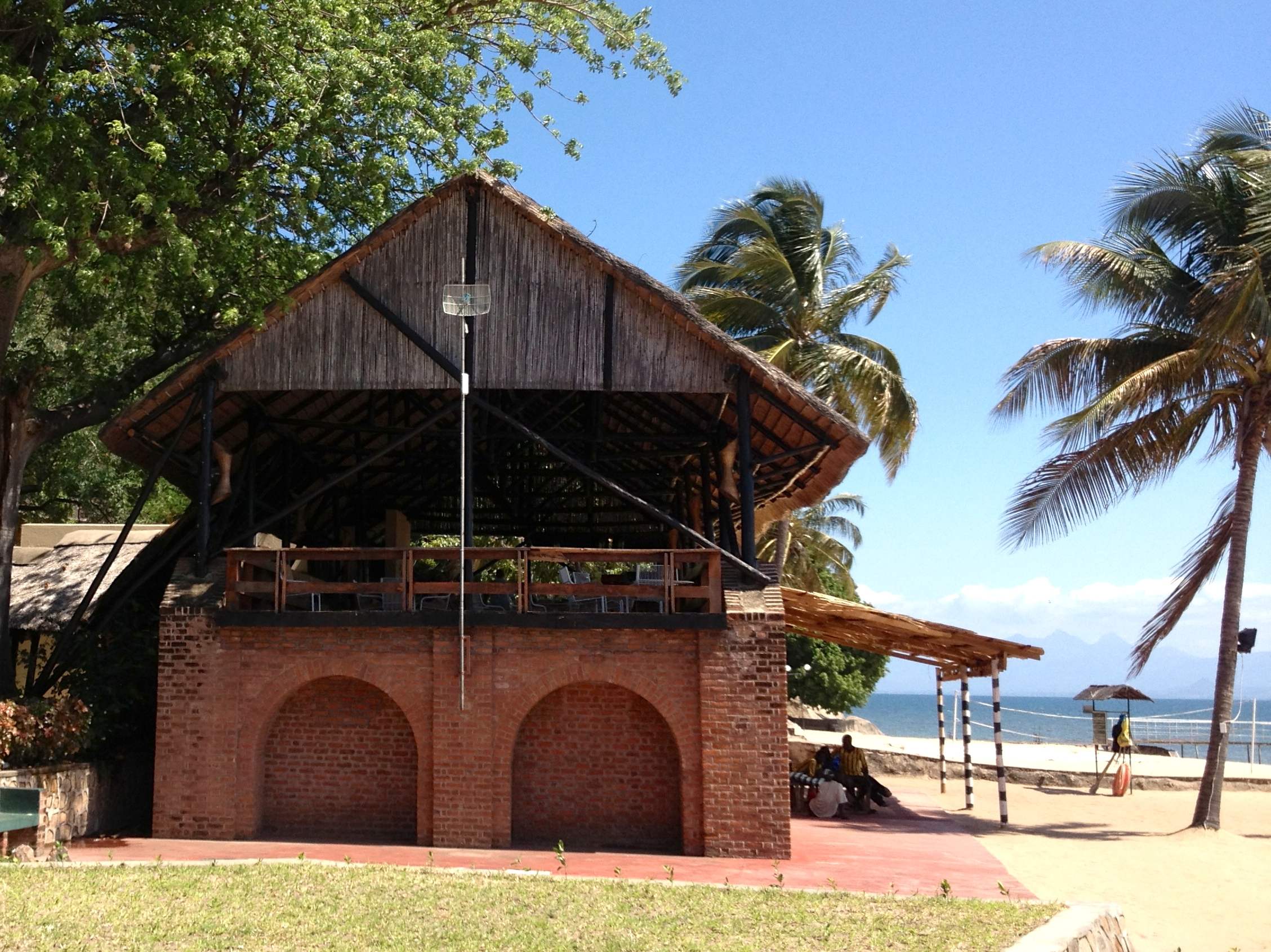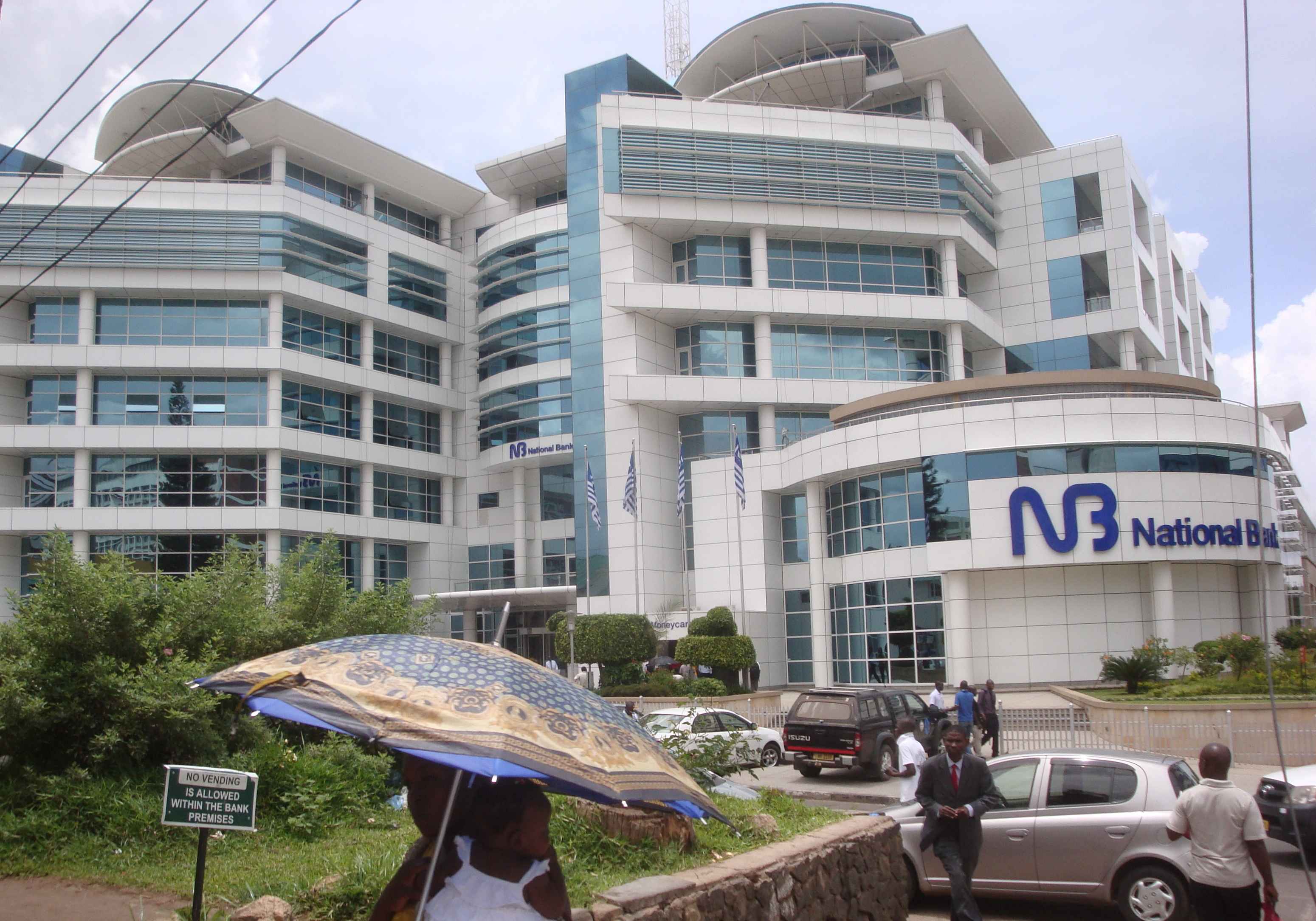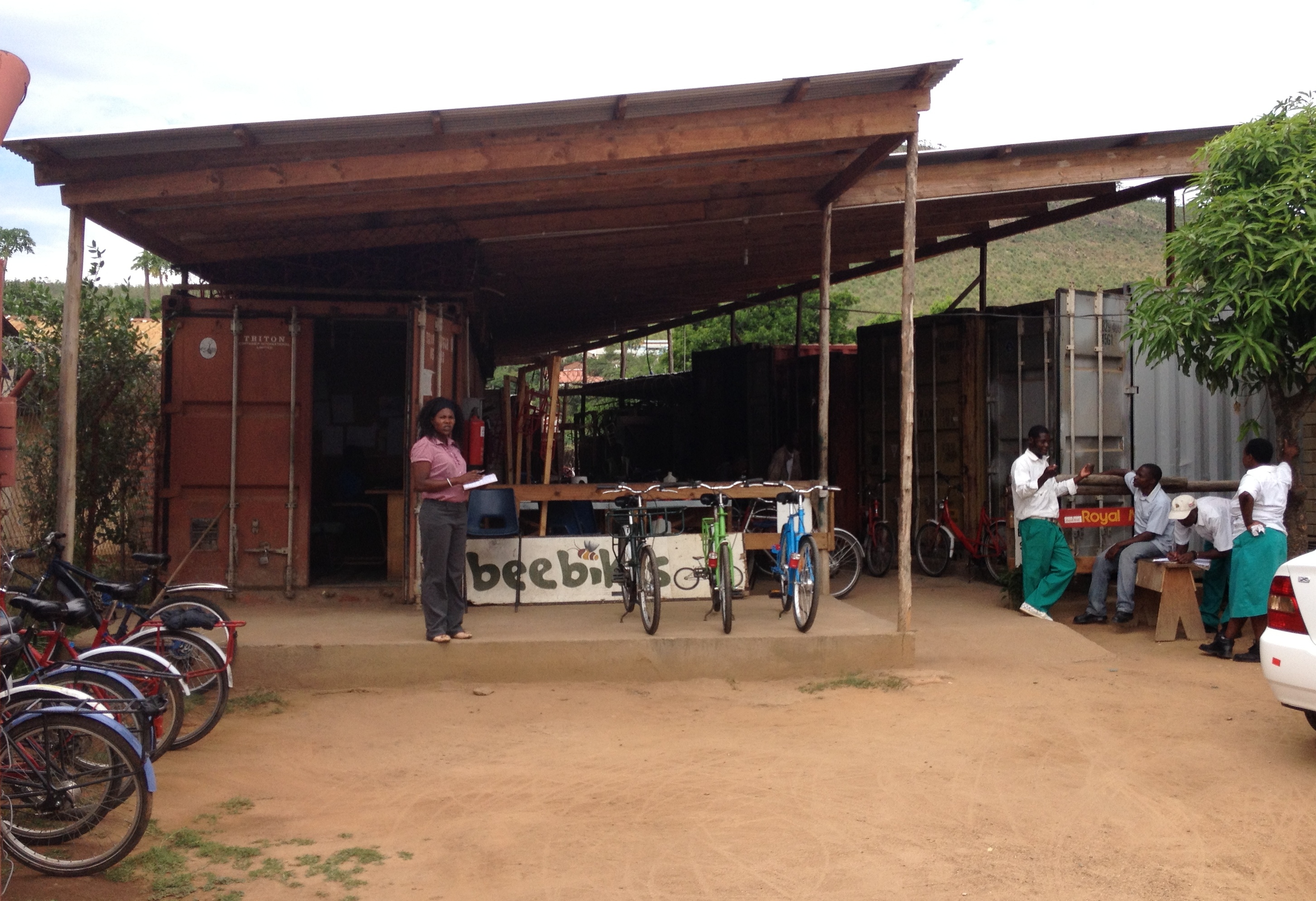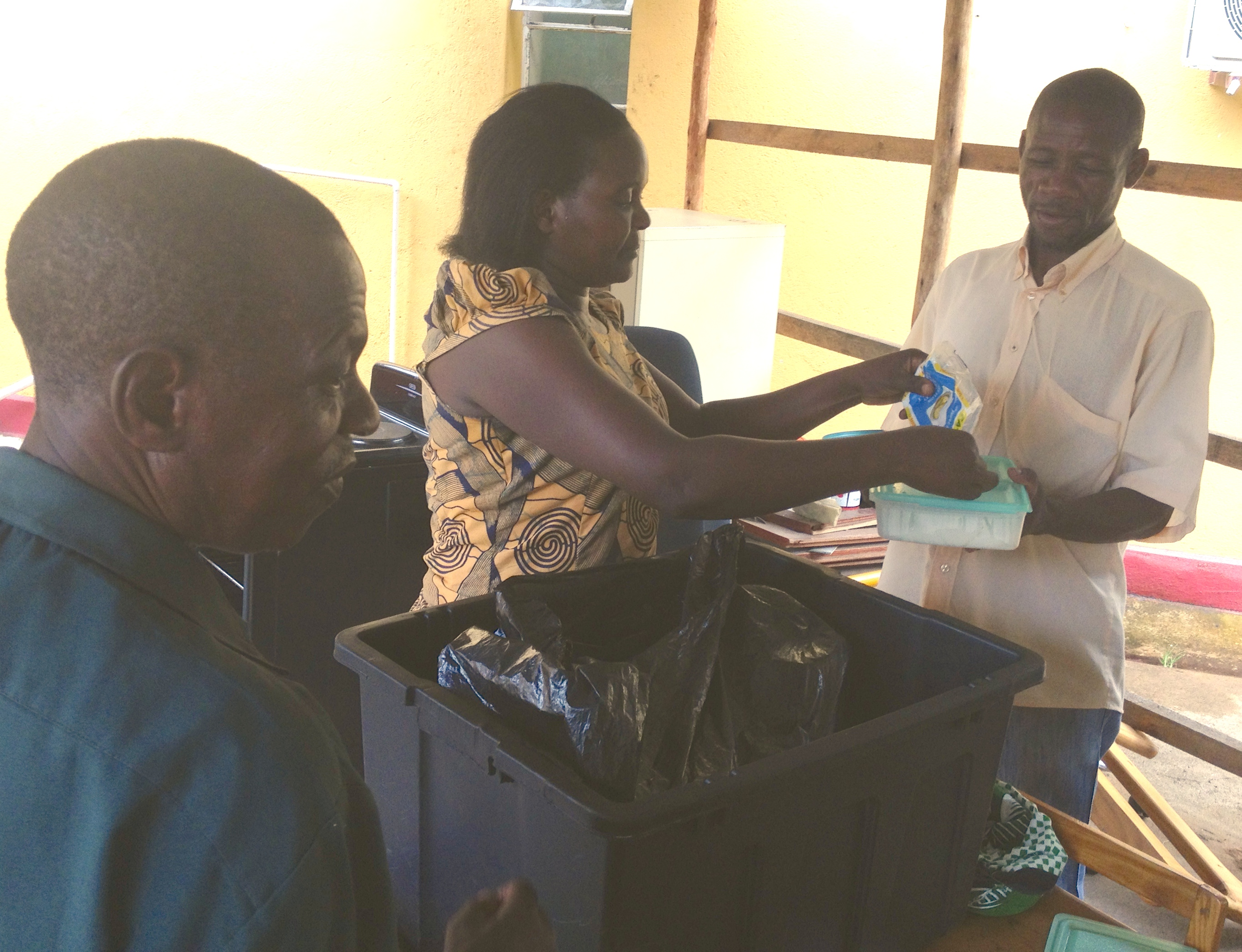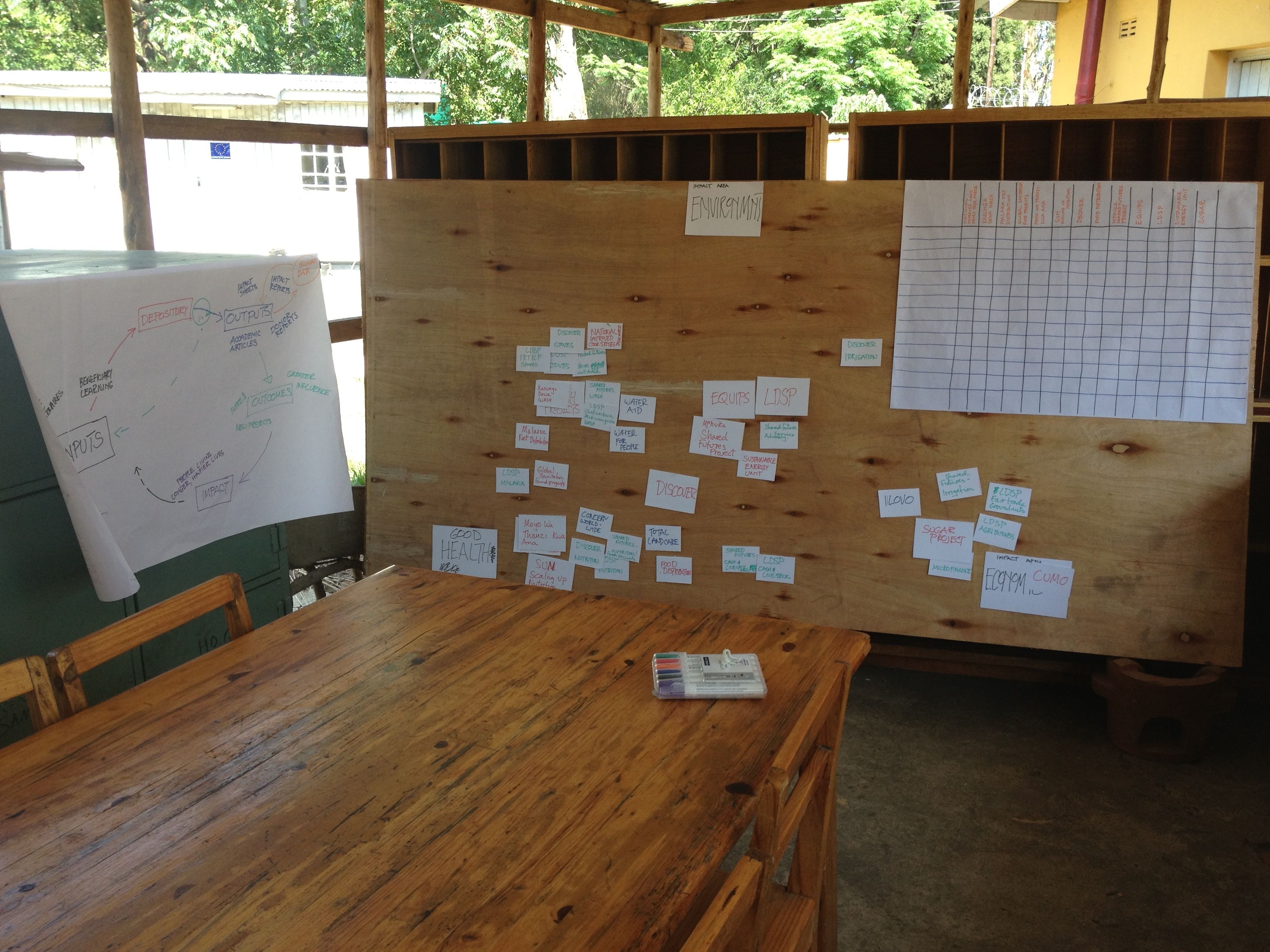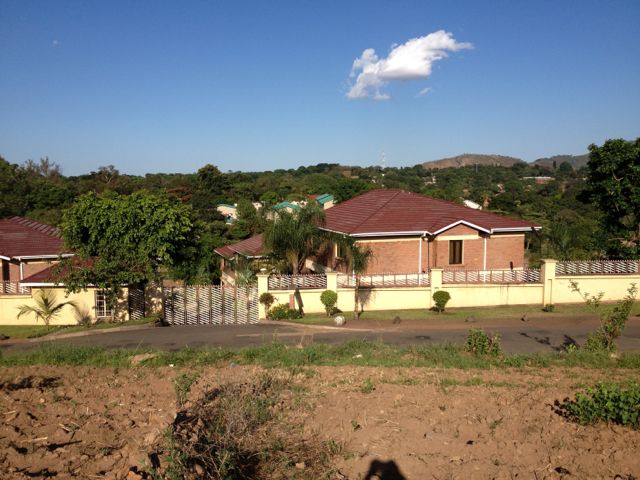Listening is often prescribed as a key component for success in a complex environment. In the workshop or meeting setting this is a literal skill set that involves reflecting back what is heard and checking for understanding.
In these first few weeks I have read through a number of CU documents, including the Malawi Country Strategy and the 2013 Impact Report. What I can understand from these documents is that the organisation has two quite clear logic streams. One is centred around ‘on the business’ and the other ‘in the business’.
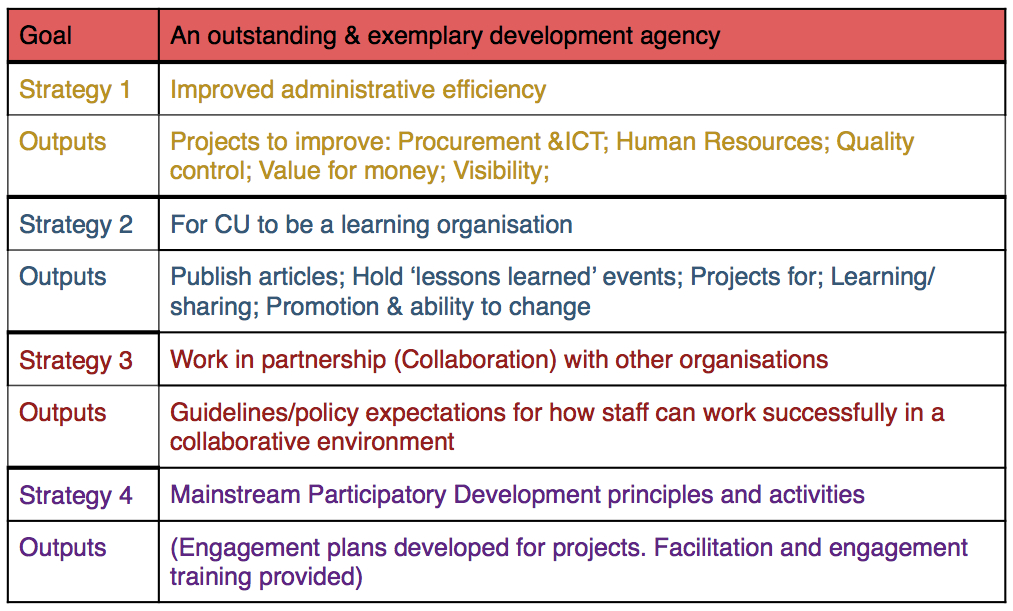
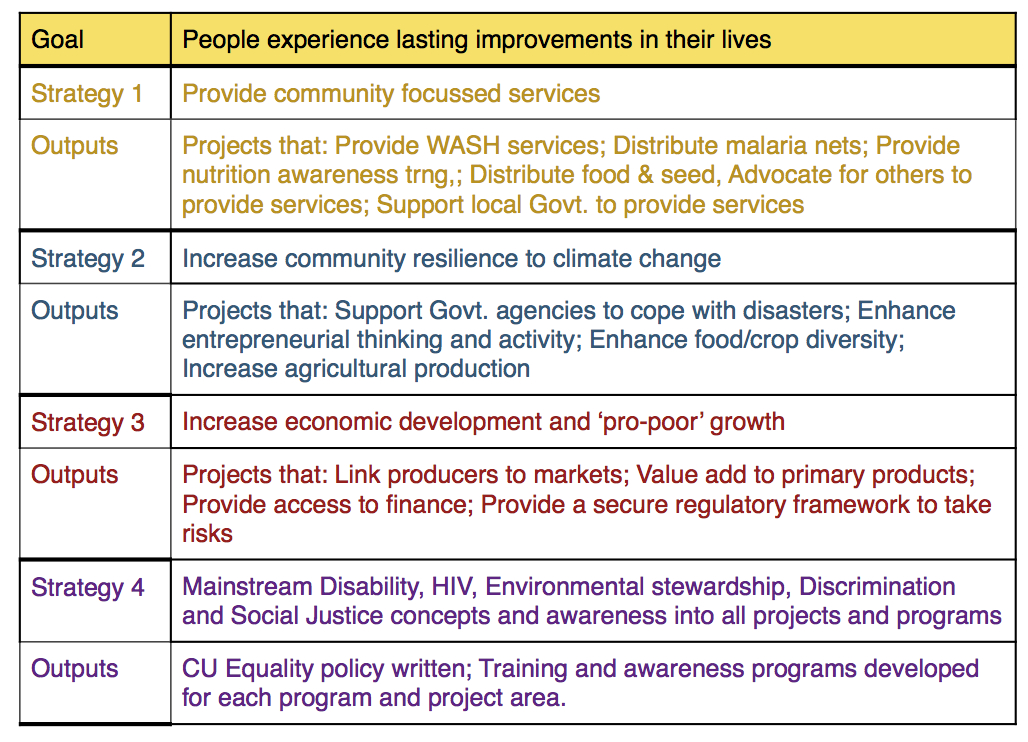
After producing these LogFrames, I confirmed with senior staff that they were a reasonable understanding of the organisation. In this process, further information surfaced. The first was that many donor organisations require projects, programs and implementing agencies to demonstrate against the OECD criteria of:
- Efficiency
- Effectiveness
- Sustainability
- Impact
Also, that the survey carried out to inform the 2013 Impact report identified that Malawians value:
- Food availability
- Harmonious Relationships
- Health
- Housing
The former characteristics all appear to match the first LogFrame (what CU is) and the latter, what CU does. I sense that the twin goals of creating a National M&E framework and CU becoming a learning organisation will emerge from marrying these criteria to the LogFrames.
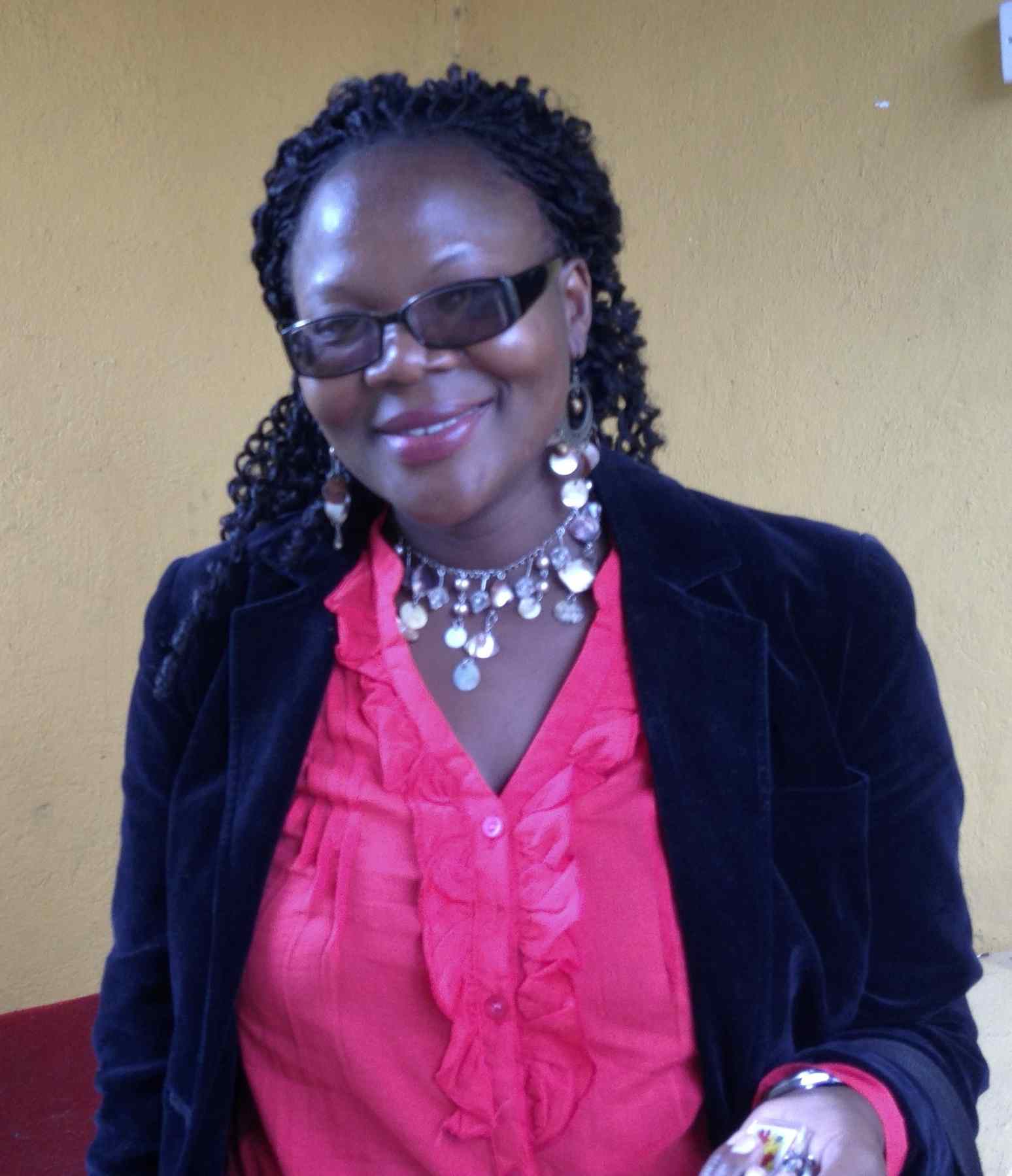
I’ve also been getting to know my colleagues better, I share office space with Tokazane Chiwandira, CU National Equality Coordinator and owner of Tac-Maz Designs: Hair, Fashion, Events.

